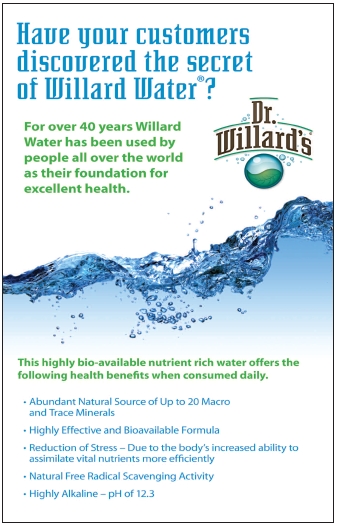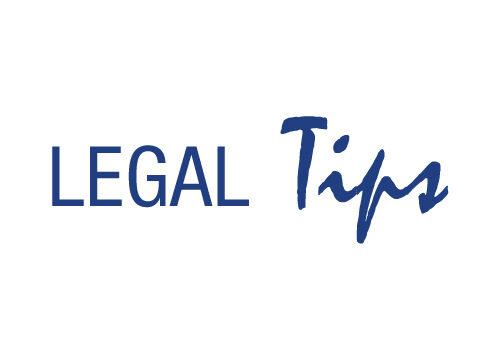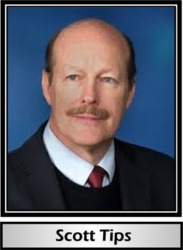Editor’s Note: This article is intended for information purposes only. Because state and municipal laws vary greatly, as do the circumstances of individual cases, readers are advised to contact an attorney for specific legal advice.
For anyone doing business in California, Proposition 65’s history is well-known by now both within and outside that state. In November 1986, California voters approved ballot Proposition 65 in the belief that its passage would help protect them from toxic chemicals in the environment. Officially entitled the “Safe Drinking Water and Toxic Enforcement Act of 1986,” almost everyone these days simply calls it Prop 65.
Prop 65 requires the state to publish a list of those chemicals “known” to cause cancer or birth defects or other reproductive harm. This list is updated at least annually and has ballooned to include more than 800 chemicals. Although Prop 65 uses the term “known,” in the real world, not all of the substances on the list are necessarily known to cause cancer, but are only those that could, under certain circumstances, pose a risk of cancer based upon the interpretation of existing scientific data, primarily animal studies.
Prop 65 also requires businesses with 10 or more employees to notify Californians with a “clear and reasonable” warning about the presence of any of those listed chemicals in their products, in consumers’ and employees’ homes or workplaces, or that are released into the environment. The law further prohibits businesses from knowingly discharging significant amounts of any listed chemicals into California drinking-water sources. The California Office of Environmental Health Hazard Assessment (OEHHA) administers this program.
Typically, sellers of products and services containing  these toxic chemicals at actionable levels can avoid legal repercussions by posting such a “Prop 65” warning, either on or where the products are sold, depending upon the particular situation of the sale. In the case of products containing a toxic substance but no warning, the State Attorney General, a County District Attorney or even private legal bounty hunters can sue those companies violating Prop 65, even though no harm from the products is ever demonstrated, and exact enormous legal and other costs.
these toxic chemicals at actionable levels can avoid legal repercussions by posting such a “Prop 65” warning, either on or where the products are sold, depending upon the particular situation of the sale. In the case of products containing a toxic substance but no warning, the State Attorney General, a County District Attorney or even private legal bounty hunters can sue those companies violating Prop 65, even though no harm from the products is ever demonstrated, and exact enormous legal and other costs.
While some good has resulted from Prop 65, as with all government programs, the good intentions can all too readily lead to enormous bad consequences that far outstrip any possible good. One easy example of this is the Prop 65 listing of natural progesterone as a cancer-causing agent when in fact it helps counteract the carcinogenic effects of estrogen. Natural, bio-identical progesterone is an important hormone-replacement therapy for women, many of whom have been unfortunately scared away from its health benefits by the Prop 65 warnings that are mandated on the product.
Urban Myths
As with just about anything, myths and misinformation have sprung up around Prop 65 like flies around garbage, particularly in the health-food community. After all, we are about natural health, so how could we be affected by Prop 65 and its mandated warnings, right?
One myth is that food is exempt per se from Prop 65. Another is that a Prop-65 defendant may simply show that the listed substance in its product is “naturally occurring” and it will win. Yet another myth is that consent decrees made by other litigants may be used by non-connected parties as some sort of “precedent.” All are untrue.
Meet Anti-Supplement Bias
So, why do we even care about these urban myths? More importantly, why did they begin?
Unless you’ve been living under a rock for several decades, you know full well the strong bias against dietary supplements that exists out there. Whether it is the pharmaceutical-ad-running The Reader’s Digest with its April 2010 “Vitamin Scam” feature article or merely the local witch-doctor scaring her patients away from supplements in favor of drugs, it is ever-present. Couple that animosity with gun-slinging lawyers eager to make their quick fortune in the courtroom using Prop 65 as a weapon and you have a potentially lethal combination.
So the lawyers will, and have, run tests on dietary supplements; and—no surprise—those tests have found some supplements to have toxic, heavy-metal lead in them at actionable levels. Lawsuits are filed, complaints served and the companies are stunned.
The anti-supplement Luddites have hooted in delight about this supposed proof-positive that supplements are indeed dangerous. But even the bane of the industry, the U.S. Food and Drug Administration (FDA), has come out with a statement that the levels of lead in the supplements they tested are not dangerous. (See www.nutraingredients-usa.com/Industry/FDA-survey-supports-low-lead-levels-in-supplements)
Still, the FDA is not the enforcement arm of Prop 65, nor the defender of the supplement industry, so what do defendant supplement companies do? Understandably, defense lawyers for these companies scramble for the Safe Harbor provisions of the California Code of Regulations §§ 25501, 25705, and 25805, one of which exempts levels that are “naturally occurring,” if they have been reduced to the “lowest level currently feasible.”
Consent Decrees
But the scramble has produced confusion; and from this confusion has sprung urban myths about the law. Defendants have often stood their ground on the basis that the lead in their supplements is “naturally occurring” and have successfully entered into more than a dozen consent decrees that enshrine this defense. Even the California Attorney General, Bill Lockyer, issued an Opinion Letter in 2001 in support of this defense (see http://caag.state.ca.us/prop65/pdfs/prop65chocolateltr.pdf). And trade organizations such as the American Herbal Products Association and the Council for Responsible Nutrition have been superb in helping defendants obtain these best-possible outcomes under the law.
Still, there are problems with relying upon consent decrees, as good regulatory lawyers like Jeffrey B. Margulies and Todd Harrison know very well. And Opinion Letters, as we all should know, are not binding upon the courts but only entitled to “great weight.”
Todd Harrison, of the Washington, D.C.-based firm Venable LLP, probably spelled it out best when he noted that “for over a decade, many regarded the naturally occurring allowances in these documents as de facto regulation—lead allowances available to use by all persons who might otherwise need to warn under Prop 65 due to lead in their products. However, today some plaintiff attorneys allow non-parties to employ the allowances, others do not. In addition, in 2011, the California Attorney General insisted that only parties to a consent judgment may rely on the lead allowances therein. Hence, it has become increasingly evident that informal reliance on the lead allowances in past consent agreements may not stave off an enforcement lawsuit.”
The New Attorney General
Under Prop 65, the California Attorney General must sign off on consent decrees before they become final. When the People v. Warner-Lambert consent decree of 1997 came up for its scheduled modification in 2011, the new State Attorney General Kamala Harris made it clear that the naturally occurring lead allowances set forth in the agreement only apply to the settling parties in that litigation.
 Her strict view was equally evident last July in the Nasseri v. CytoSport Second Amended Settlement Agreement. When the litigants submitted their first settlement agreement in 2011, the new Attorney General called it a violation of California law because CytoSport would only have to lower lead levels to the lowest level feasible and nothing more. The company then suggested using a single “naturally occurring” lead level for all of its products regardless of the ingredients or their amount in each product. The Attorney General also denied this proposal. Finally, the parties submitted a Second Amended Settlement Agreement that set a “naturally occurring” lead level for each ingredient.
Her strict view was equally evident last July in the Nasseri v. CytoSport Second Amended Settlement Agreement. When the litigants submitted their first settlement agreement in 2011, the new Attorney General called it a violation of California law because CytoSport would only have to lower lead levels to the lowest level feasible and nothing more. The company then suggested using a single “naturally occurring” lead level for all of its products regardless of the ingredients or their amount in each product. The Attorney General also denied this proposal. Finally, the parties submitted a Second Amended Settlement Agreement that set a “naturally occurring” lead level for each ingredient.
But, again, the Attorney General refused it. As Todd Harrison commented, “Significantly, the Attorney General suggests that the only way to establish the ‘naturally occurring’ exception for lead or any other listed chemical is to undertake a comprehensive analysis of the ‘background levels’ of the listed ingredient at the site from which each product constituent was obtained. She adds that ‘in order to claim the [naturally occurring] exemption, [Cytosport] must prove that the chemical is not present in the product due to any human activity, and that it has used ‘good agricultural or good manufacturing practices’ in order to reduce the chemical to the ‘lowest level currently feasible.’”
Important Distinctions
Despite this clear statement of the Attorney General’s position, some individuals still think that if a listed chemical in a dietary supplement is “naturally occurring,” then—as with other foods—it does not require a Prop-65 warning, even if it contains a listed chemical that exceeds the safe-harbor limit. This is wrong.
The recent decision in Gillette v. Garden of Life, et al., regarding “naturally occurring,” has fostered such confusion among observers, particularly because that court recently ruled against Plaintiff Gillette’s idiotic contention that dietary supplements are not foods and thus not able to shelter in the “naturally occurring” safe harbor. The court, though, ruled only on that narrow issue. The Defendants in Gillette now must shoulder the heavier burden of establishing not only that the levels of lead in their supplements are naturally occurring, but also at the lowest feasible levels.
This is apparent from the Attorney General’s strong position on the “naturally occurring” defense. With these ongoing cases, what must companies do in order to protect themselves from Prop-65 claims?
Mr. Harrison once again rescues us here with his analysis: “To date, there has been no successful challenge of the Attorney General’s interpretation in Nasseri v. Cytosport. Her uncompromising stance on the required methodology to determine lowest feasible naturally occurring lead allowances is significant and likely foreshadows the narrowing interpretation of Prop-65 regulations and settlement structures to come. In other words, it is time to develop real traceability standards for the industry or suffer the consequences because the plaintiff attorneys are not going away and simply stating the product comes from the ground is not going to absolve you from Prop-65 liability.”
In other words, according to the Attorney General and current law, naturally occurring lead levels for a product can only be determined by a thorough analysis of the natural soil levels of  lead from which the product came. Importantly, though, no “known human activity” may introduce lead into the food and the naturally occurring lead that is present must be reduced by the latest technology to the “lowest level currently feasible.” With the rapid advances in analytical technology, that “lowest level” is an ever-descending one. WF
lead from which the product came. Importantly, though, no “known human activity” may introduce lead into the food and the naturally occurring lead that is present must be reduced by the latest technology to the “lowest level currently feasible.” With the rapid advances in analytical technology, that “lowest level” is an ever-descending one. WF
A graduate of the University of California at Berkeley Law School, Scott C. Tips currently practices internationally, emphasizing Food-and-Drug law, business law and business litigation, trade practice, and international corporate formation and management. He has been involved in the nutrition field for more than three decades and may be reached at (415) 244-1813 or by e-mail at scott@rivieramail.com.
Published in WholeFoods Magazine, April 2013










